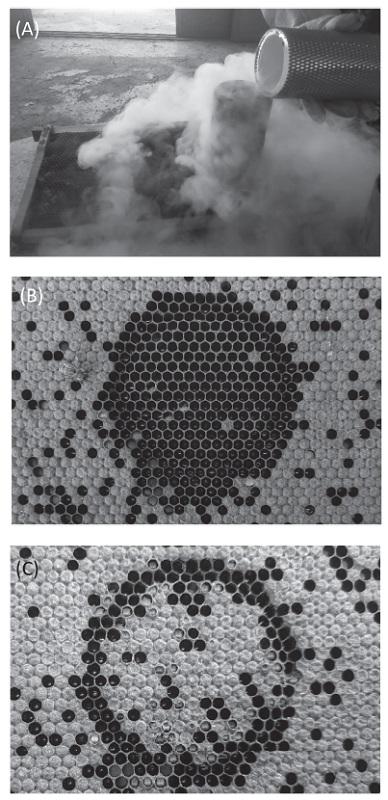Current issue

Author:Pen-Han Chen*, Zin-Hao Huang, Pei-Shou Hsu, Chi-Yen Pan, and Tzu-Hsien Wu
Abstract:
The Western honey bee (Apis mellifera L.) is an essential pollinator and contributes significantly to apiculture. Its health is crucial for food security and agricultural profitability. Varroa destructor, an ectoparasitic mite, poses the greatest threat to honey bee health by transmitting pathogens and disrupting development, which negatively affects agricultural productivity. Beekeepers used to control Varroa mites with miticides, but prolonged use has led to mite resistance and miticide residues in honey bee products. In addition to chemical control, social immune behaviors of honey bees, such as worker hygienic behavior can enhance the Varroa mite management by reducing pathogen and mite reproduction. This review explores the methods for breeding Varroa mite-resistant honey bees by: (1) assessing the health status of source colonies; (2) evaluating social immune behavioral competencies and gene expressions for selecting parental colonies; and (3) assessing the performance of social immune traits in progeny colonies. This breeding program will help improve Integrated Pest Management (IPM) strategies.
Key words:Apis mellifera, Varroa destructor, Social immune behaviors, Integrated pest management
Download:![]() PDF Links
PDF Links
- 1. A Novel Molecular Identification Technique for Lasiodiplodia species Associated with Avocado Diseases in Taiwan
- 2. Bacteria in Insect Pest Management in Agriculture: The Past, Present, and Future
- 3. Multiple Applications of Yellow Mealworm (Tenebrio molitor L.) Reared on Plant-Based Substrates: Circular Agriculture, Farmed Animal Feed, and Other High-Value Products
 Submit your manuscript
Submit your manuscript
 Guide for authors
Guide for authors